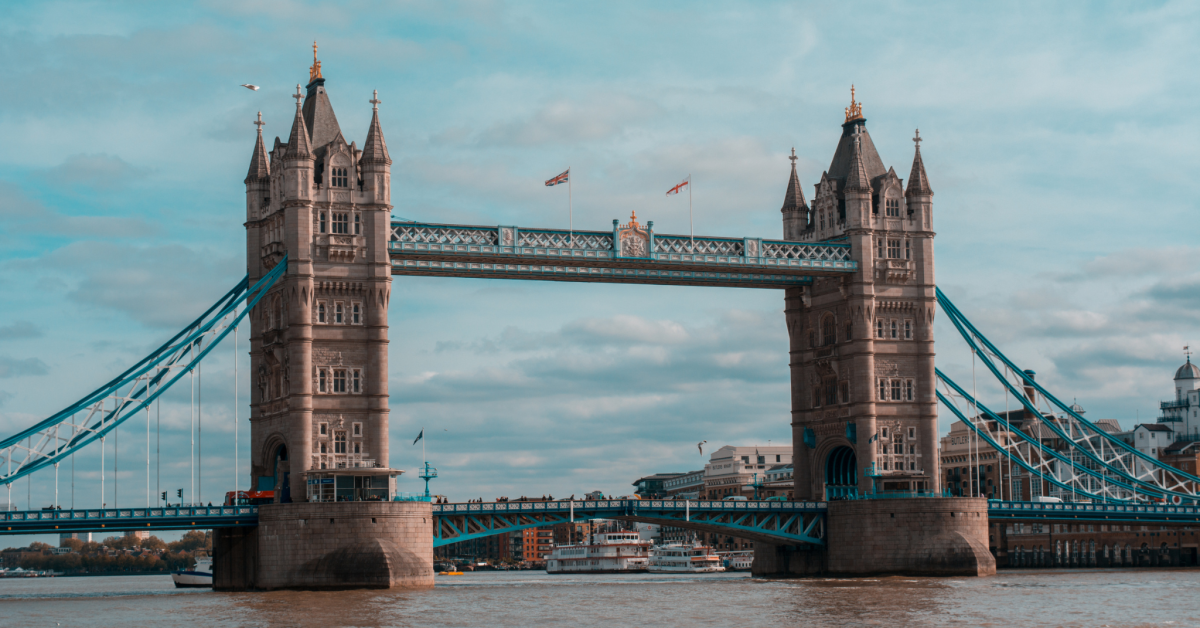UK–EU Relations: A Successful Reset, but Not Yet a Gamechanger
At a Glance
The UK–EU summit marked a meaningful reset in relations, featuring broad political alignment and agreements across six key areas: security and defense, SPS/trade, migration and mobility, energy, crime and irregular migration, and carbon market cooperation. While the reset avoids major structural changes to the Brexit framework, it offers practical steps to ease trade frictions, resume youth exchanges, and enhance energy and security cooperation. Many elements remain provisional, with critical details—especially on funding, legal alignment, and market access—still under negotiation. Despite criticism, particularly over fisheries, and though modest in economic terms, the agreement represents opportunity for rebuilding trust and pursuing deeper collaboration over time.
UK–EU reset: What does it capture?
A deal over fishing rights—a totemic and politically sensitive issue way out of proportion relative to its economic footprint—was struck late last night, paving the way for a successful UK-EU reset summit. Prime Minister Keir Starmer trumpeted a “landmark deal” which proved “Britain is back on the world stage” while Commission President Ursula von der Leyen talked about “turning the page and opening a new chapter in our unique relationship.”
Given the UK and EU’s respective red lines, the scope of the reset was always going to be limited, with an emphasis on addressing specific shortcomings in the current relationship as opposed to re-engineering the entire structure of the post-Brexit relationship. Of course, most Brexit supporters would counter the view that the post-Brexit settlement needed to be re-opened or that the concessions that the UK has made are worthwhile.
In any event, today’s agreement is more of a “heads of terms” agreement with much of the detail still subject to further negotiation. The positive political atmosphere around today’s summit gives grounds for cautious optimism that progress will continue to be made, though some of the granular issues—such as the UK’s financial contribution to various joint initiatives—will be thorny. Below is a summary of what has been agreed and committed to across the key thematic areas comprising the reset package.
Security and Defence Partnership (SDP)
Arguably the centerpiece of the new relationship, the SDP created positive momentum which helped to drag other, more thorny issues over the line. The SDP’s general framework establishes dialogue and consultation mechanisms which will allow the UK and EU to “maintain flexible and scalable engagement” at senior political and official levels with a view to working closer together in areas of shared interest. This includes a new six-monthly foreign and security policy dialogue between the EU’s High Representative and the UK Foreign and Defence Secretaries.
The issues that these mechanisms will cover encompass both current geographical hotspots but also a wide array of thematic areas across the security and defense spectrum, from maritime and space security, cybersecurity, counterterrorism, and defense industrial policy. Many of the points here are markers for additional negotiations further down the line—there are 17 references to the UK and EU “exploring” specific forms of collaboration. This includes the terms on which the UK will be able to participate in EU-funded defense procurement initiatives such as the GBP 150 billion SAFE program. Von der Leyen described today’s agreement as a “first step…we need another second step.” As such, the SDP could be seen as a ticket that gets you inside the main grounds of a festival, but access to specific attractions comes with additional conditions or payment.
Common Sanitary and Phytosanitary Area (SPS) and Fishing
The UK and EU will work towards establishing a Common SPS Area which would see “the vast majority of movements of animals, animal products, plants, and plant products” between Great Britain and the EU benefiting from smoother procedures without the post-Brexit paperwork and checks (Northern Ireland is already covered by the Protocol/Windsor Framework). Of all the measures announced today, given the volume of UK–EU trade in food and agri-food, this will have the largest economic benefit. Specifically, it will make the export of certain products, such as shellfish and processed meats, from the UK to the EU viable again and as such it will be welcomed not only by farmers, but also the wider food supply ecosystem of haulers and retailers.
In order to access these benefits, the UK has committed to “timely dynamic alignment” with relevant EU rules overseen by an independent arbitration panel subject to the ultimate jurisdiction of the European Court of Justice. In order to soften the blow of losing full regulatory autonomy in this area, the EU has agreed to involve the UK at an early stage of its own decision-shaping process in this area. In addition, although not formally linked in the text of the agreement, as mentioned above, the UK has agreed to rollover the “transitional” fishing arrangements agreed by Boris Johnson (due to expire next year) by a further twelve years. These are widely seen as unduly favourable to the EU, but the government would argue that it secured a negotiating win by trading off time-limited access to UK fishing waters for a non-limited common SPS area.
UK–EU Migration and Mobility
The UK and EU commit to deepening “people-to-people ties, particularly for the younger generation.” This will include a youth mobility scheme, the exact details of which are yet to be determined but which, in a victory for the government’s immigration hawks, will ensure that “the overall number of participants is acceptable to both sides” (i.e., it will not be unlimited). In addition, the UK will rejoin the Erasmus+ student exchange program, although again, the precise terms of this are still to be agreed amid concerns that allowing EU students to pay the lower rate of fees paid by UK nationals would further increase the strain on the already struggling UK university sector. Finally, in a big win for UK travellers, they will be allowed to use eGates when entering and leaving the EU (subject to individual EU member states agreeing). This was a major irritant for UK travelers and for many people the single biggest post-Brexit change that they noticed on an individual level.
Energy and Electricity
Greater energy and climate cooperation also features heavily in the Common Understanding document. At his press conference, Prime Minister Starmer talked extensively about its potential to bring down bills, cut carbon taxes, and boost the renewable industry in the North Sea. Starmer said the current Brexit agreement had left Britons with more expensive ways of working despite “being physically connected” to the European grid. Participation of the UK in the EU’s internal electricity market is referenced in the Common Understanding document. Any linkage will, however, require “dynamic alignment with European Union rules.” This, like many energy measures included, will require further difficult negotiations. The summit commits to starting those future talks.
The most concrete announcement is the proposal to link the UK and EU emission trading scheme. The UK and EU “should work towards establishing a link between carbon markets” through an agreement linking the United Kingdom Emission Trading Scheme (UK ETS) and the European Union Emission Trading System (EU ETS). This potentially opens the door for UK exporters to avoid the EU’s carbon border adjustment mechanism (CBAM), which the prime minister claimed would save UK businesses GBP 800 million per year in carbon taxes. This begins at the start of 2026 so the deadline for agreement is tight.
Crime and Irregular Migration
The UK and the EU agree to begin discussions on granting the UK access to EU facial recognition data to support efforts in apprehending dangerous criminals. Both parties will also promote closer cooperation between Europol and the UK’s National Crime Agency in addressing criminal threats and exchanging intelligence on terrorism and other serious offences. They have also committed to further collaboration on tackling illegal migration, including efforts on returns and a shared pledge to address Channel crossings. Having some tangible “win” on the issue of small boat crossings is something the UK side was extremely keen to get over the line given domestic pressures and political salience of the issue. The two sides will also explore closer cooperation to address challenges related to visa policy, such as exchanging analysis on visa abuse by third country nationals.
Steel
The UK and EU will link their carbon markets to avoid taxes on carbon-intensive goods like steel and cement traveling between the UK and EU. British steel exports will be protected from new EU rules and tariffs which the government estimates will save UK steel GBP 25 million a year.
Analysis: Strategic necessity meets political pragmatism
Brexit is not even ten years old but, as repeatedly referenced during the press conference, the world has dramatically changed since then—most notably as a result of the war in Ukraine and the trans-Atlantic rupture. European Council President Antonio Costa said that against the backdrop of an increasingly volatile world, a rapprochement between like-minded partners like the UK and EU was not a luxury but rather a necessity.
It is almost certainly true that absent these developments this reset would have been less of a priority for both sides, but even so the negotiations could not entirely escape from the shadow of Brexit and the subsequent acrimony or base realpolitik on areas like fish seen as more zero-sum. The EU also does not appear to have conceded much on touring artists or mutual recognition of professional qualifications, two other key UK asks alongside SPS.
However, this emphasis on tactical considerations alongside strategic ones was not limited to the EU, with the UK also prioritizing restricting EU migration under the aegis of youth mobility and limiting new financial obligations to the EU. The combination of these on top of the pre-existing red lines on the single market and customs union meant that the reset was never going to be a gamechanger in economic terms.
Nonetheless, even if the scope of the reset will be somewhat disappointing to committed pro-Europeans, it not only contains some tangible wins on its own terms but also establishes a platform that can potentially be expanded over time. The successful conclusion of these overarching negotiations also helps to re-establish trust between the UK and EU, which is very valuable in and of itself when it comes to fleshing out and operationalizing the reset agreement.
Of course, nothing comes for free with the EU, which in many ways is just as tough of a negotiator as the US under Donald Trump. The concession on fishing will be particularly painful, less so because of its direct impact, and more the political narrative that will be spun around the betrayal of fishing communities—both the Conservatives and Reform have already seized on this.
Nonetheless, the government will calculate that they were going to shout about “Brexit betrayal” pretty much regardless, and that with a majority of voters saying they believe Brexit had been the wrong decision (by 55% to 30% according to YouGov), they have the political space to maneuver. They will also point out that the reset was an explicit manifesto commitment which has been delivered, and that the size of their majority gives them license to make the necessary trade-offs. Finally, while Starmer’s claim that the reset will be felt in working people’s pockets may be a bit of stretch, for the millions of people traveling to and from the EU, the ability to breeze through passport control via eGates will be a noticeable and welcome change.
In terms of intra-Labour dynamics, “moderates” will be cheered by this deal and will be particularly pleased with the development on youth mobility—seen by many as one of the worst outcomes from Brexit. Wider tensions will remain, however. For example, while Labour Growth Group MPs will welcome the economic benefits of the new arrangements, “Red Wall” MPs will strike a more skeptical tone. They will have concerns about the European Court of Justice being given more power, and potentially opening doors to further immigration which they fear will not play well in their constituencies—especially if this deal is seen as the potential pathway to further arrangements in future.
More widely, there remain ongoing questions about the overall political strategy at play for Labour here. It is clear that party strategists see Nigel Farage and Reform as a key threat, hence the Reform-adjacent rhetoric and policy in areas like immigration and foreign aid. The question therefore becomes how do closer ties with the EU square with that wider pitch? Notwithstanding the government’s arguments that the reset is driven by pragmatic considerations—just like the recent “deal” with the US—for some it will represent further confusion about the party’s overall narrative and identity which need to be resolved.
View from Brussels: A significant milestone but plenty of road left
Today’s EU–UK summit has provided some additional comfort following the relief felt in Brussels after Sunday’s elections in Romania and Portugal, as well as the first round of the presidential election in Poland. Pro-EU candidates came out on top in all three, although far-right populists remain on the rise.
The UK domestic political implications of the summit package are less interesting to the Brussels bubble than the substance, and most of the work on the substance lies ahead. “The proof of the pudding is in the eating,” is one of Brussels’ over-used clichés, but this reflects the reality that announcements about most EU negotiations are rarely a full and final deal. The EU–UK agreements are no exception: the Security and Defence Partnership demonstrates clear political alignment between the EU and UK, but Brussels-watchers remain very aware that further legislative steps are needed before the UK can be formally included in the EU’s SAFE defense procurement scheme.
Similarly, agreeing to work towards linking emissions trading systems and mutual exemption from Carbon Border Adjustment Mechanisms underlines UK and European Commission willingness to address an important concern for business, but all eyes will be on the next steps. The plan for a Sanitary and Phytosanitary agreement is also seen as ensuring greater regulatory certainty and overcoming trade friction. EU policymakers generally underestimate the difficulty any UK government has in agreeing to dynamic alignment with EU rules, and will be watching closely for the limited exceptions which are expected to emerge in the food and veterinary field.
For the EU, this is definitely an occasion to mark, but with one eye firmly on the road ahead.
Key political and business reactions
- “I am gobsmacked… this is a sell-out, certainly on fishing… We should be using opportunities of leaving the European Union and not taking steps back.” — Kemi Badenoch, Leader of the Opposition
- “If true that will be the end of the [UK] fishing industry.” — Nigel Farage, Leader of Reform
- “Some positive first steps in rebuilding our relationship with Europe… The PM must ignore the naysayers and dinosaurs in Reform and the Conservative party and be more ambitious in getting the best deal in the national interest.” — Ed Davey, Leader of the Liberal Democrats
- “Today’s Summit marks a leap forward in the EU–UK relationship… The work must not stop here: making the most of this opportunity means not just resetting the relationship but futureproofing it.” — Rain Newton-Smith, Chief Executive of the CBI
- “The [SDP] is welcome development, although somewhat underwhelming in its lack of detail… While we are assured that this will pave the way for the UK defence industry to participate in [SAFE]… we are reluctant to celebrate too early when the specifics of such a deal remain to be seen.” — Kevin Craven, Chief Executive of ADS
- “As our largest and oldest trading partner, unencumbered trade with the EU is incredibly valuable for the dairy and agri-food sector.” — Judith Bryans, Chief Executive, Diary UK
- “It falls a long way short of what we’d hoped for. It makes the situation worse.” — Mike Cohen, Chief Executive of the National Federation of Fishermen’s Organisations
- “We congratulate the UK government on securing this deal with the EU which will slash the red tape and the time taken to get premium salmon to market.” — Tavish Scott, Chief Executive of Salmon Scotland
“I am very pleased to see today’s UK–EU summit work towards a youth experience scheme and association to the Erasmus+ programme. These are hugely positive steps opening up future opportunities for our young people.” — David Hughes, Chief Executive of the Association of Colleges
Materials presented by Edelman’s Public & Government Affairs experts. For additional information, reach out to Jonathan.Mitchell@Edelman.com



